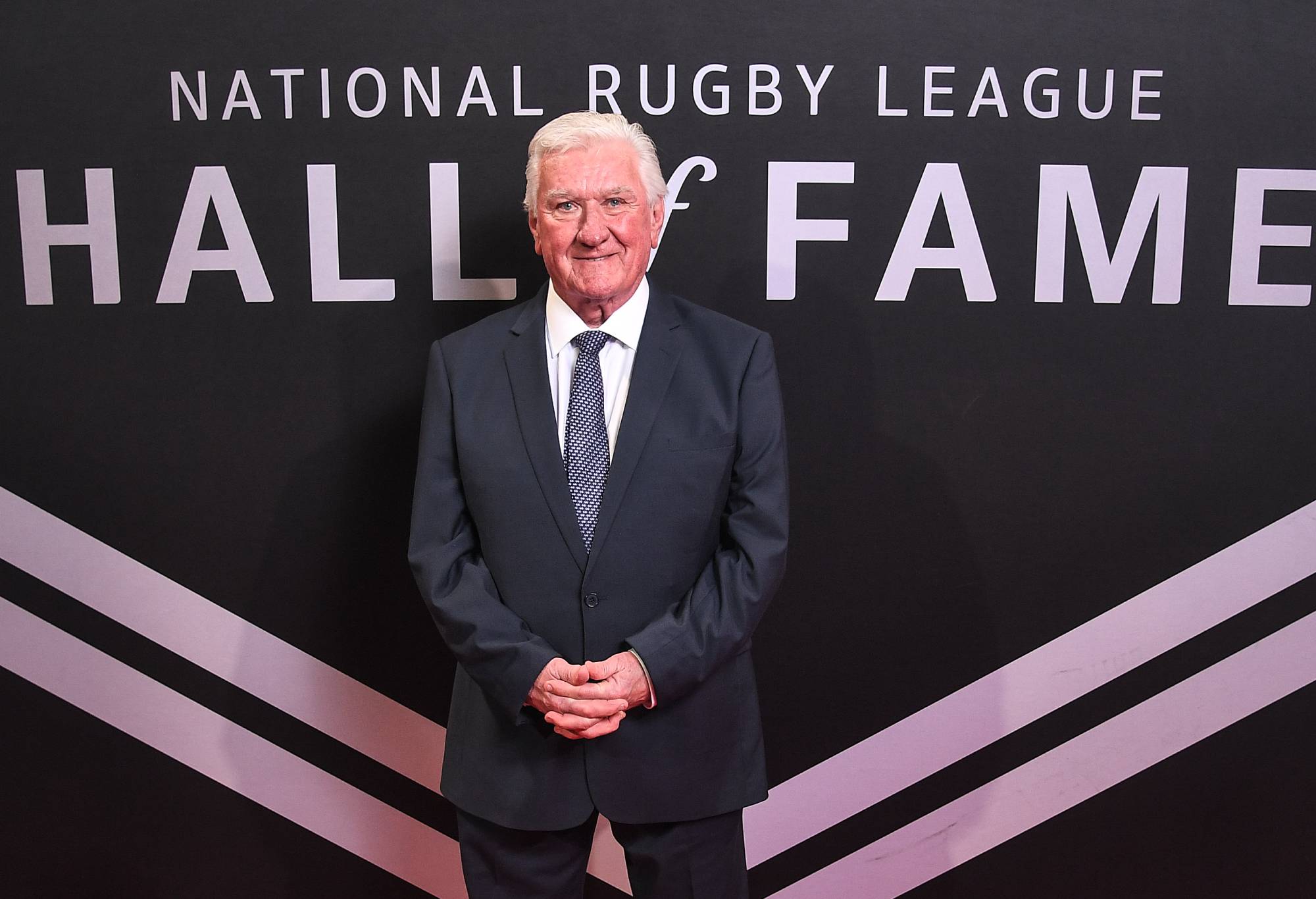NRL News: Blues won't rush Moses in as ex-Storm stars butt heads over Hynes, the fuel that's fired up NAS
Nicho Hynes is on track to get his first No.7 jersey for NSW with new coach Michael Maguire set to ignore a late push…
He hails from the country town of Junee in country NSW; he dreamt of becoming a sports commentator since the age of seven and then became known colloquially as the ‘voice of rugby league’.
A few weeks ago, when I was able to interview my commentating hero, the great Ray Warren, he provided me with a great insight into his journey to the top as a broadcaster in this country.
When he was only seven years old, every Saturday afternoon, he would sit down in his kitchen with his parents and listen to the horse races while they would place bets with one of their friends (who was an illegal bookmaker). He says that was his ‘typical Saturday afternoon’ with his parents, and ‘if you didn’t want to be part of it, I don’t know what you would do’.
Listening to those races, he became fascinated – not by the horses or jockeys, but instead by the man who was commentating the races, who was more often than not Ken Howard, a man ‘Rabs’ looked up to and who he wanted to be like.
When he decided that race calling was what he wanted to do, he then set off on his journey to perfect the craft in what he describes as a ‘crazy way’ by using marbles. Since he had no access to physical races in his home country town, after school he would come home and roll marbles and call them as if they were horses as practice.
From Phar Lap to Peter Pan, Rabs would give the marbles names as if he were calling real horses. He explains that these marbles played ‘an enormous role’ in his life and gave him the means for living out his dream.
He would eventually make his rugby league commentating debut in 1966 for 2LF Young and has since accrued an amazing resume of achievements in a variety of sports. He would go on and call 45 NRL grand finals, three Melbourne Cups, and swimming races at the Olympics, and that’s just scratching the surface.
He then quickly became a staple of Australian broadcasting and became known as the ‘voice of rugby league’,, and was revered by both athletes and fans. Ray had many characteristics that set him apart from the rest behind the mic, but there was one that helped him become the very best.

Ray Warren arrives ahead of the 2019 NRL Hall of Fame at Carriageworks on August 14, 2019 in Sydney, Australia. (Photo by James Gourley/Getty Images)
Of course, that was his ability to never pick sides, an attribute that is often overlooked by the main callers these days. He says that he had a ‘broadcasting creed’ that he attempted to follow throughout his whole career, and that was ‘don’t let yourself become a barracker’.
Despite his complete impartiality, he confesses that sometimes having an evident bias when calling a game can be quite appropriate.
In one of the very few moments where he himself became a ‘barracker’ (for Susie O’Neill in the final metres of her race to break a 19-year-old record in the 200-metre butterfly event), he acknowledged the emotion behind his call, making that moment even more memorable.
He explained that past players barracking and shouting for their own team such as Paul ‘Fatty’ Vautin did with Queensland and Peter ‘Sterlo’ Sterling did with the Parramatta Eels, can make the big moments even more special.
Rabs says that you should ‘expect that’ from Fatty, Sterlo, etc. because ‘if you cut open their veins, they bleed their team’s colours’.
In a broadcasting career that spanned over five decades, when asked about his favourite ever moment that he called, he obviously found it difficult to pick one, so he narrowed them down to his favourite rugby league moment.
That was of course the ‘that’s not a try, that’s a miracle’ call in Origin I 1994 (when winger Mark Coyne scored a try to win the game for Queensland in the final minute of the game), which he explains has been ‘replayed so much’, which is one of the reasons why it’s his favourite.
Additionally, he extends that calling the three Melbourne Cups that he did were also very special as calling that race was always ‘a part of his dream’ given his background. He says that those calls were the most ‘nerve-wracking’ in his whole career.
After calling it quits in the box early last year, Rabs believes the last ever game he ever called for Channel 9, which was of course the 2021 NRL Grand Final, was “the perfect way to end.”
For the last five decades, he called almost every single iconic moment that happened in rugby league. There were many qualities that fans attributed to him that set his career apart from the rest, but the most remarkable quality was that he transcended eras.